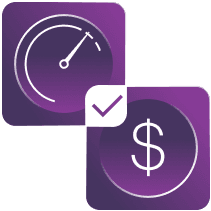The tech landscape is more globalized than ever before. Businesses aiming to stay competitive are increasingly looking beyond their borders for specialized expertise and cost-effective solutions. For many tech startups, IT managers, and business owners, Ukraine has emerged as a hotspot for offshore software development.
With its pool of highly skilled developers, impressive technology ecosystem, and competitive pricing, Ukraine offers significant advantages. But to reap the full benefits, choosing the right offshore software development company Ukraine has to offer is crucial. This guide will walk you through the essential considerations and offer actionable steps to help you make an informed decision.
Offshore Software Development in Ukraine: An Overview
Ukraine has positioned itself as a key player in the global IT outsourcing and offshore development sectors. Offering an abundance of experienced engineers, cutting-edge technology hubs, and a robust education system producing over 130,000 IT specialists annually, the country is tailor-made for businesses seeking a capable offshore development team.
Key tech sectors, including fintech, healthtech, AI, and gaming, thrive in Ukraine. Cities such as Kyiv, Lviv, and Kharkiv host vibrant IT clusters, housing companies specializing in web development, mobile apps, AI, SaaS solutions, and more.
Perhaps the most appealing factor? The cost-to-quality ratio. IT specialists in Ukraine maintain a high standard of technical expertise while charging significantly less than developers in Western Europe or North America.
Why Offshore Development in Ukraine Is Gaining Popularity
Here’s why businesses across the globe are turning to offshore software development in Ukraine:
- Skilled Talent Pool. Ukraine boasts over 200,000 IT professionals, with expertise in popular programming languages including Java, Python, JavaScript, PHP, and Ruby. Many developers are familiar with international project management standards like Agile and Scrum.
- Cost Efficiency. Offshore development in Ukraine offers substantial savings. Hourly rates for developers here are notably lower than in the United States or Western Europe, often without compromising quality.
- Time Zone Compatibility. Ukraine’s regular working hours overlap with those in many European countries and even partially with North America. This makes real-time communication and collaboration much easier.
- Strong Education Systems. More than 20,000 tech graduates enter the workforce annually. Renowned universities such as Kyiv Polytechnic Institute offer strong computer science and engineering programs, ensuring a highly competent labor force.
- Tech-Savvy Culture. Ukraine’s developers are not just technically proficient; they stay up-to-date with the latest technology trends, maintaining a passion and curiosity for innovation.
Key Differences Between Offshore and Outsourcing Models
Before selecting a Ukraine offshore development company, it’s essential to understand how offshore development differs from outsourcing.
Offshore Development typically involves creating a dedicated team that works exclusively for your business. This team operates as an extension of your in-house staff, providing seamless collaboration and long-term commitments.
Outsourcing, on the other hand, refers to contracting specific tasks or projects to an external party on a case-by-case basis. It’s ideal for short-term needs or specialized tasks, but may lack the depth of integration that an offshore model allows.
On a side note, the future of talent acquisition lies in a balanced approach across different sourcing models. Insourcing and GIC have become key strategies for rebalancing as organizations move beyond outsourcing.
 Source: Deloitte
Source: Deloitte
Depending on your business goals, one model may suit you better than the other. However, for tech startups aiming to build products over the long term, working with an offshore development team in Ukraine is typically the smarter choice.
What Is an Offshore Development Center (ODC)?
An Offshore Development Center (ODC) is a dedicated team located in another country, working exclusively for your company. Unlike traditional outsourcing arrangements, ODCs function almost like a branch of your in-house team. They offer a range of services, including software development, quality assurance, DevOps, and product support.
By setting up an ODC in Ukraine, businesses can leverage consistent access to skilled developers, maintain tighter control over their projects, and build long-term partnerships.
Top 5 Criteria for Choosing the Right Offshore Software Development Company in Ukraine
So, how do you select the right offshore software development company in Ukraine that aligns with your specific needs?
1. Define Your Project Scope and Goals
Start with clarity. Before you look for a Ukrainian offshore software development company, define the scope of your project and outline your goals. This foundational step sets the tone for your entire partnership.
Why It Matters:
- Reduces ambiguity, ensuring all stakeholders are aligned.
- Helps offshore software development companies in Ukraine understand your needs and propose the right solutions.
- Saves time and resources by narrowing down potential partners to those who specialize in your requirements.
Key Actions:
- Identify Your Requirements: Determine the functionalities, user personas, design preferences, and technical specifications for your software.
- Set Goals: Are you building an MVP? Expanding an existing product? Clarify your short-term and long-term objectives.
2. Research Potential Offshore Development Companies in Ukraine
Ukraine is home to a vast number of software development companies, but identifying the most reliable ones requires thorough research. Reputation and experience are key indicators of a trustworthy partner.
Research Tips:
- Explore Reviews and Ratings: Platforms like Clutch, GoodFirms, and Upwork can provide insights into past clients' experiences with offshore software development in Ukraine.
- Request Case Studies: Look for companies that have worked on projects similar to yours. Successful case studies demonstrate real-world expertise.
- Leverage Networks: Reach out to peers in your industry who have worked with Ukraine offshore development teams. Recommendations often lead to dependable partners.
What to Look For:
- Years in Business: Companies with 5+ years in the industry often have the processes and expertise required for complex projects.
- Key Clients: Check if they've worked with startups or businesses in your industry.
- Technology Expertise: Ensure they specialize in the programming languages and tools your project demands.
- Budget Planning: Define your budget range to focus on companies that offer value within your financial constraints.
3. Evaluate Team Composition and Technical Skills
Your offshore development team's skills, experience, and problem-solving approach will directly influence your project's success. Don't just evaluate the company as a whole; get to know the team that will work on your project.
What to Assess:
- Core Expertise: Does the team excel in the technologies your project needs? For example, if you're developing a SaaS product, search for expertise in cloud-based technologies like AWS or Microsoft Azure.
- Team Structure: A well-rounded offshore software development team in Ukraine should include software engineers, QA testers, UX/UI designers, and project managers.
- Certifications and Training: Look for certifications such as Agile, Scrum, or PMP, which showcase professionalism and a structured approach.
Questions to Ask:
- What certifications and technical proficiency do the developers possess?
- How does the team stay updated on the latest industry trends?
- Can they solve complex challenges or recommend alternative solutions when constraints arise?
Pro Tip: Ask to conduct technical interviews or assessments before finalizing your decision. This ensures the team has the expertise to bring your vision to life.
4. Assess Communication Efficiency and Cultural Fit
Smooth collaboration between you and your offshore development team is only possible with clear communication and compatible working styles. Language proficiency, time-zone alignment, and cultural nuances can significantly influence the quality of your partnership.
What to Evaluate:
- Language Skills: English proficiency is critical. Most Ukraine offshore development teams excel in English, but verify to avoid miscommunication.
- Time-Zone Compatibility: Ukraine’s GMT+2 time zone is ideal for European clients and manageable for U.S.-based companies, allowing for real-time collaboration.
- Cultural Compatibility: Ukrainian developers are known for their strong work ethic, creative problem-solving, and adaptability. Build trust by fostering mutual respect and understanding.
Tools for Communication:
- Use platforms like Slack or Microsoft Teams for real-time messaging.
- Adopt project management tools like Jira or Trello to maintain transparency and track progress.
- Schedule regular video calls to ensure alignment and address potential roadblocks promptly.
5. Verify Legal Compliance and Data Security Measures
Data security is one of the top concerns in offshore software development Ukraine solutions. To safeguard your business, it's essential to verify the legal compliance and security standards of your chosen offshore software development company in Ukraine.
Key Considerations:
- NDAs and Contracts: Ensure the company is willing to sign non-disclosure agreements (NDAs) and establish a clear, legally binding contract outlining responsibilities, deadlines, and payment terms.
- Data Protection Policies: Ukrainians adhere to global privacy frameworks like GDPR. Confirm that the company employs industry-standard encryption, firewalls, and other cybersecurity measures.
- Intellectual Property Rights: Establish ownership of source code and developed assets in writing to avoid disputes later.
Checklist for Security:
- Ask about their data storage practices and backup protocols.
- Verify their compliance with privacy laws relevant to your target market.
- Request documentation of past audits or certifications that validate their security practices.
How to Evaluate Offshore Software Development Teams in Ukraine
So, how do you ensure you're partnering with the right offshore software development team in Ukraine? Let us lay out what you should consider.
Portfolio and Case Studies: What to Look For
One of the first steps in evaluating an offshore software development company in Ukraine is reviewing their portfolio. A company's portfolio gives you insight into their industry experience, project scope, and the quality of their work.
Focus on Relevant Industries Look for prior experience in your specific industry. For example, if you're developing a healthcare app, ensure they’ve worked on HIPAA-compliant applications.
Assess Project Complexity Have they handled projects similar in size and complexity to yours? A detailed portfolio can provide clarity on whether they can scale according to your needs.
Evaluate Design and Functionality Examine user interface (UI) and user experience (UX) in demo applications or platforms they've developed. A great UX is a testament to their attention to detail.
Client References and Independent Reviews
Client testimonials and third-party review platforms like Clutch and GoodFirms are goldmines when researching offshore Ukraine software development companies.
Speak Directly to References Request references from past clients so you can ask detailed questions about their experience. Were deadlines consistently met? Was communication clear and proactive?
Check for Consistent Feedback Consistent positive feedback on independent review sites signals reliability and professionalism. Negative reviews, on the other hand, can be red flags.
Technical Expertise: Verifying Certifications and Competencies
A successful offshore development team Ukraine can deliver will have expertise in the latest technologies and tools. It’s essential to assess whether a team’s technical knowledge aligns with your project requirements.
Certifications Check for certifications in relevant technologies (e.g., AWS Certified Developer, Microsoft Certified Solutions Expert). Certifications validate skills and ensure industry best practices.
Specialized Technologies Determine whether the team has expertise in specialized frameworks or programming languages crucial to your project (e.g., React, Python, or Kubernetes).
Coding Standards Ask about their development practices. Do they follow clean code and documentation practices? Are they well-versed in DevOps and Agile methodologies?
Conducting Preliminary Interviews with Offshore Development Teams
Lastly, consider interviews for evaluating both technical and cultural fit.
Technical Assessment Conduct a coding test or request a live coding session to see your shortlisted team's problem-solving abilities firsthand.
Cultural Fit Focus on their communication skills, ability to understand business objectives, and commitment to collaboration during interviews.
I want to learm more about your offshore software development services. Book a 30-min. consultation
Request a free callManaging Collaboration with Your Offshore Development Team in Ukraine
Choosing the right team is only half the equation. Successful offshore projects also require effective collaboration. Here's how to manage it effectively.
Best Practices for Seamless Communication
Clear, constant, and effective communication is fundamental when collaborating with any offshore team, especially in a country like Ukraine, located in a different time zone. Here’s how you can achieve seamless collaboration:
- Define Communication Protocols Early. Set expectations for work hours, communication frequency, and the tools you’ll use for regular updates. Ukraine's time zone (GMT+2) works advantageously for European countries but requires adjustments if you're based elsewhere, like the U.S. Factor in time zone overlaps into your schedule for meetings or handovers.
- Keep Meetings Productive. Avoid overly long, repetitive meetings by establishing clear agendas in advance. Stick to a consistent schedule, such as weekly sprint reviews or daily stand-ups, to address blockers quickly and maintain momentum.
- Appoint a Single Point of Contact. Eliminate confusion by assigning a dedicated project manager on both ends to streamline communication. These individuals will act as mediators, ensuring tasks, insights, and feedback are translated effectively between teams.
- Encourage a Culture of Openness. Ukraine boasts a collaborative culture among its IT professionals. Take advantage of this by encouraging a feedback-friendly dynamic, where team members share ideas, concerns, and suggestions without hesitation.
Tools and Technologies for Effective Offshore Collaboration
The right collaboration tools are essential for keeping your team aligned, regardless of geographic distance. Here are some must-have tools to support your offshore Ukraine software development team:
Project Management Tools
Managing tasks and deadlines can be overwhelming without a proper system in place. These tools can help streamline workflows and ensure accountability:
- Jira: An industry standard for agile project management, especially ideal for software development teams using sprints.
- Trello: Great for visual task tracking with its simple Kanban interface.
- Monday.com: Perfect for integrating high-level project overviews with team collaboration features (e.g., assigning tasks, tracking milestones).

Communication Platforms
Staying connected is critical. Use these tools for instant communication, team sync-ups, and fostering a sense of collaboration:
- Slack: A favorite for real-time messaging with customizable channels for organization and integrations with Jira or GitHub.
- Microsoft Teams: Offers chat, video conferencing, and powerful document collaboration, perfect for mid-sized and enterprise-level teams.
- Zoom: Reliable video conferencing suited for hosting virtual town halls, in-depth team discussions, or one-on-ones.
Code Collaboration Tools
Software development means working collaboratively on code. These tools make version control and collaboration easy and reliable:
- GitHub: Provides version control, code review options, and seamless integration with CI/CD pipelines.
- GitLab: Offers comprehensive code collaboration features, with project planning tools built in.
Knowledge Transfer and Documentation Maintenance
When working with an offshore team, robust knowledge sharing is critical to avoiding information silos and turnover risks.
1. Centralize Documentation
Investing time upfront in creating an accessible and up-to-date knowledge base ensures consistency across teams. Use platforms like Confluence or Notion for comprehensive documentation that's easy to share and update. Include:
- Project requirements and specifications
- Coding guidelines and best practices
- Key contacts and escalation procedures
2. Formalize Handover Processes
Whether a developer leaves your project or transitions within roles, you’ll want a standardized handover checklist. This prevents gaps in knowledge and ensures business continuity.
3. Record Regular Updates
Ask your offshore development team in Ukraine to share progress using demo recordings, backlog reviews, and sprint meeting notes. This creates a detailed account of what’s been accomplished and what remains in progress.
4. Encourage Regular Training
Given the rapid pace of technology, keep your team aligned by encouraging them to participate in training programs or certifications. Many Ukrainian developers take pride in continuous learning and will readily upskill to match your project needs.
Final Thoughts on Choosing the Best Offshore Development Company in Ukraine
Partnering with the right offshore development team in Ukraine can propel your business forward, offering top-tier talent at competitive rates. From defining goals to evaluating cultural fit and security measures, each step is crucial in finding a reliable partner.
To ensure a seamless and rewarding experience, partner with Clover Dynamics. We’ll help you take your ideas from concept to reality with unmatched professionalism and skill. Here’s why we stand out:
- Top Talent Pool: We work with highly skilled Ukrainian developers who specialize in a vast range of technologies, from front-end to back-end development.
- Expert Curation: Our team pairs your project with experts possessing the precise skill sets required for optimal results.
- Transparent Collaboration: We maintain transparency and open communication throughout the development process.
- Cost-Effective Solutions: We ensure high-quality outcomes while keeping your offshore development within budget.
- Commitment to Success: Your success is our #1 priority. Clover Dynamics focuses on building long-term partnerships by delivering exceptional results every time.
For more info about us, check our clients' feedback on Clutch. Here’s what one of them says: "Everyone I meet from Clover has a positive attitude and is highly professional in their domains", - Michael Yokota, VP of Product & Revenue at LiveTracking
FAQs
Which Country Is Best for Offshore?
Ukraine is consistently ranked among the top destinations for offshore software development, thanks to its talented pool of over 200,000 IT specialists, competitive pricing, and business-friendly environment.
Does Ukraine Have Good Programmers?
Absolutely. Ukraine is home to some of the world’s best programmers, with many specializing in cutting-edge technologies such as AI, blockchain, and cloud computing. Ukrainian developers are known for their technical expertise, creative problem-solving skills, and commitment to quality.
What Is the Difference Between Outsourcing and Offshore Development?
While outsourcing typically involves hiring third-party vendors to handle a specific task, offshore development refers to partnering with a dedicated team in another country, such as Ukraine, to work as an extension of your own business. Offshore development offers more control and long-term collaboration compared to traditional outsourcing.
Is Setting Up an Offshore Development Center (ODC) in Ukraine a Good Idea?
Yes. Establishing an ODC in Ukraine offers numerous benefits, including cost savings, access to top-tier talent, and scalability. It’s an excellent option to outsource startups and build a long-term partnership with a skilled development team.







